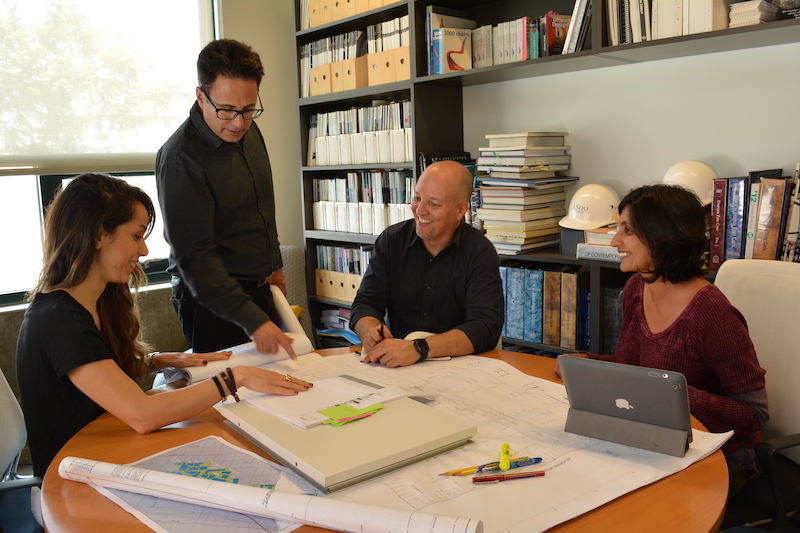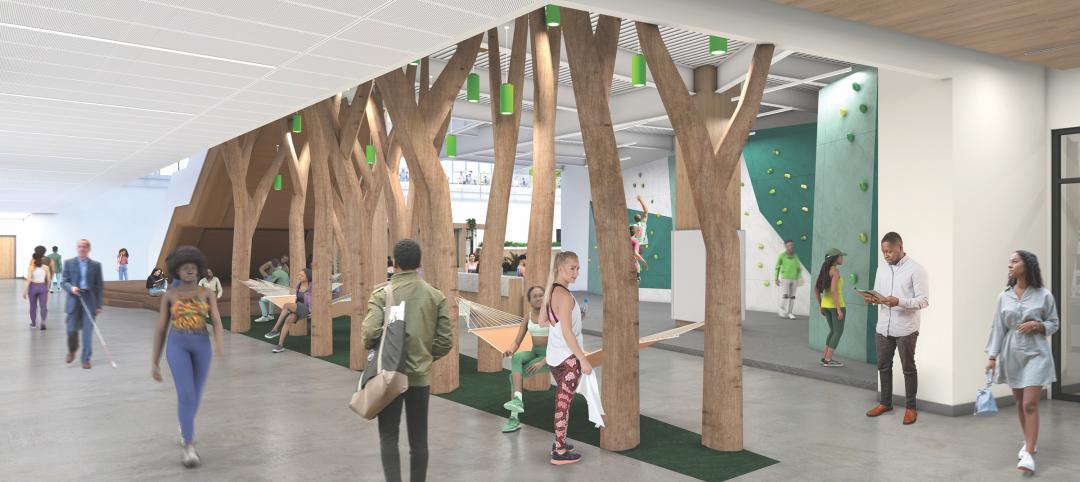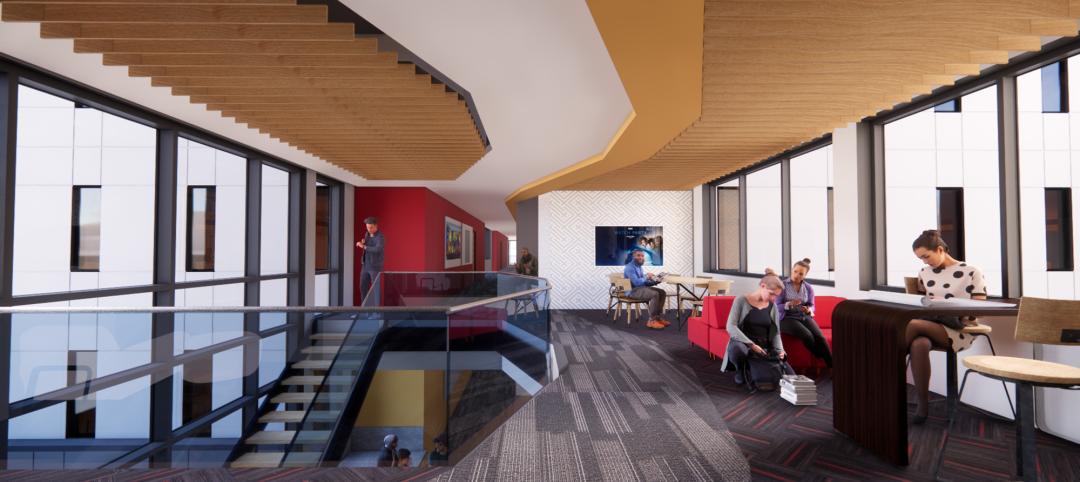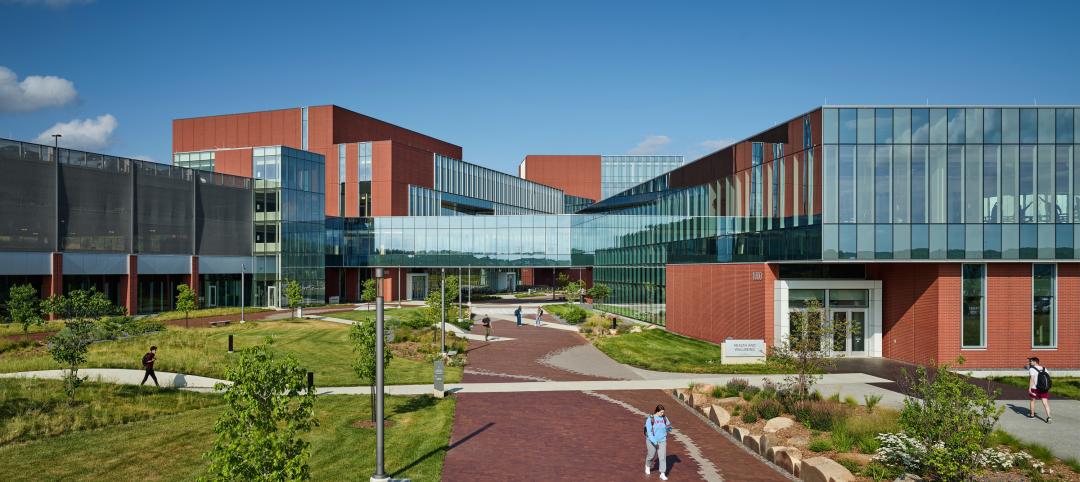Throughout my early life, my father would get up at 4:30 in the morning, six days a week, for his job as a contractor. I knew his work was taxing from seeing his coarse hands and tired eyes after he got home each day, yet he always had the energy to spend time with me. He was my closest friend and confidant, as well as my most influential role model.
In later years, as I began to pursue architecture professionally, he made sure to instill in me a sense of respect toward all workers involved in the building process, from architects and engineers, to contractors and subcontractors. It was important to him that I saw the importance of collaboration between teams, and the value of each person’s unique role and perspective. To him, each individual had ideas worthy of consideration and reward.
My experiences as a young man working side-by-side with him on job sites led to a deeper understanding of the difficulty that comes with working in the trades, and how the best at their craft worked hard to earn their sense of pride.
Using his own drawings, Swartz discusses the importance of construction detailing with his team in the HLW Los Angeles office.
REINSTILLING QUALITY IN CONSTRUCTION DRAWINGS
After 35 years as an architect, one of the things I have come to realize is that we architects need help from the trades in order to improve the quality of construction drawings. The knowledge that contractors and subtrades have is key in creating drawings and details that reflect the best constructed solution. Harnessing a sense of curiosity in the field and asking questions during the building process is one of the best ways to improve one’s understanding of construction, and therefore one’s understanding of architecture.
There have been countless times where I have seen details drawn by architects that ended up being built differently, often in a manner that improved upon the original design while still preserving the original aesthetic goal.
It is also true that contractors need help from architects in order to better understand the goals of a given design. Many times I have witnessed design goals being lost within the process of administration, change orders, RFI’s, and the many operations that go into constructing a building.
We can avoid this predicament if we go into the project supporting our designs with quality construction documents and open communication between teams. If trades workers are going to the job each day knowing their whole team is supporting them, it will inevitably produce the best possible results.
LEARNING FROM OTHER MEMBERS OF THE PROJECT TEAM
The key to all of this is a shared understanding that everyone on the project team can learn from one another. I cannot tell you how many times I have been taught something new by a subcontractor in the field because I was willing to ask questions, and people were usually more than happy to explain what they were doing and why.
Through the consolidation of field knowledge, I have continued to learn long after my days in school. I have likewise made an effort to explain the decision making behind our projects so that the whole project team can both understand our reasoning and gain insight into the design process.
Though no single individual can hold all the knowledge of an entire team, this only proves that it is all the more important for everyone to work together to fill in the gaps. That’s why I always try to be as approachable as possible, so that I can always be exchanging information across teams and across trades.
VALUES THAT ELEVATE THE PROFESSION OF ARCHITECTURE
Every evening when I wrap up my work, I can’t help but wonder if my father would approve of the architect I have become. Although I don’t come home with coarse hands or an exhausted body, I still think he would be proud of my hard-working attitude and my respect for my coworkers. I believe he would acknowledge my attempts to better understand construction and incorporate that into practical solutions for real world designs.
I can only hope he would agree with my practice of prioritizing the quality of construction drawings, along with my belief that imparting those values to my team is the best way to elevate the profession. Undoubtedly, he would have challenged every detail I drew and pushed me even harder to find the best conceivable solutions to any problem.
But I believe that, as a contractor himself, he would have respected my process as a designer, and would have been pleased with the way I collaborate with my team. Occasionally, he might have even thought that I had found a better solution than his.
ABOUT THE AUTHOR
David Swartz, FAIA, IIDA, is a Senior Partner in the Los Angeles office of architecture firm HLW. He would like to thank Kylie McManus for help in editing this essay.
Related Stories
Construction Costs | Oct 16, 2024
Construction Crane Index: Most major markets’ crane counts increase or hold steady in third quarter
Rider Levett Bucknall’s (RLB’s) latest Crane Index and Quarterly Cost Report shows continued decreasing cost inflation and crane counts increasing or holding steady in 10 of the 14 major markets it surveyed. The national average increase in construction costs was 1.07%, the lowest it’s been in the last three years.
AEC Tech | Oct 16, 2024
How AI can augment the design visualization process
Blog author Tim Beecken, AIA, uses the design of an airport as a case-study for AI’s potential in design visualizations.
University Buildings | Oct 15, 2024
Recreation and wellness are bedfellows in new campus student centers
Student demands for amenities and services that address their emotional and mental wellbeing are impacting new development on college campuses that has led to recreation centers with wellness portfolios.
Higher Education | Oct 14, 2024
Higher education design for the first-gen college student
In this Design Collaborative blog, Yogen Solanki, Assoc. AIA, shares how architecture and design can help higher education institutions address some of the challenges faced by first-generation students.
Performing Arts Centers | Oct 10, 2024
Studio Gang's performing arts center for Hudson Valley Shakespeare breaks ground
A new permanent home for Hudson Valley Shakespeare, a professional non-profit theater company, recently broke ground in Garrison, N.Y. The Samuel H. Scripps Theater Center includes a 14,850 sf performance venue that will serve as a permanent home for the theater company known for its sweeping open-air productions of classics and new works.
Sustainable Design and Construction | Oct 10, 2024
Northglenn, a Denver suburb, opens a net zero, all-electric city hall with a mass timber structure
Northglenn, Colo., a Denver suburb, has opened the new Northglenn City Hall—a net zero, fully electric building with a mass timber structure. The 32,600-sf, $33.7 million building houses 60 city staffers. Designed by Anderson Mason Dale Architects, Northglenn City Hall is set to become the first municipal building in Colorado, and one of the first in the country, to achieve the Core certification: a green building rating system overseen by the International Living Future Institute.
3D Printing | Oct 9, 2024
3D-printed construction milestones take shape in Tennessee and Texas
Two notable 3D-printed projects mark milestones in the new construction technique of “printing” structures with specialized concrete. In Athens, Tennessee, Walmart hired Alquist 3D to build a 20-foot-high store expansion, one of the largest freestanding 3D-printed commercial concrete structures in the U.S. In Marfa, Texas, the world’s first 3D-printed hotel is under construction at an existing hotel and campground site.
University Buildings | Oct 9, 2024
Des Moines University Medicine and Health Sciences opens a new 88-acre campus
Des Moines University Medicine and Health Sciences has opened a new campus spanning 88 acres, over three times larger than its previous location. Designed by RDG Planning & Design and built by Turner Construction, the $260 million campus features technology-rich, flexible educational spaces that promote innovative teaching methods, expand research activity, and enhance clinical services. The campus includes four buildings connected with elevated pathways and totaling 382,000 sf.
Student Housing | Oct 9, 2024
University of Maryland begins work on $148 million graduate student housing development
The University of Maryland, in partnership with Campus Apartments and Mosaic Development Partners, has broken ground on a $148.75 million graduate student housing project on the university’s flagship College Park campus. The project will add 741 beds in 465 fully furnished apartments.
Healthcare Facilities | Oct 9, 2024
How healthcare operations inform design
Amanda Fisher, Communications Specialist, shares how BWBR's personalized approach and specialized experience can make a meaningful impact to healthcare facilities.

















